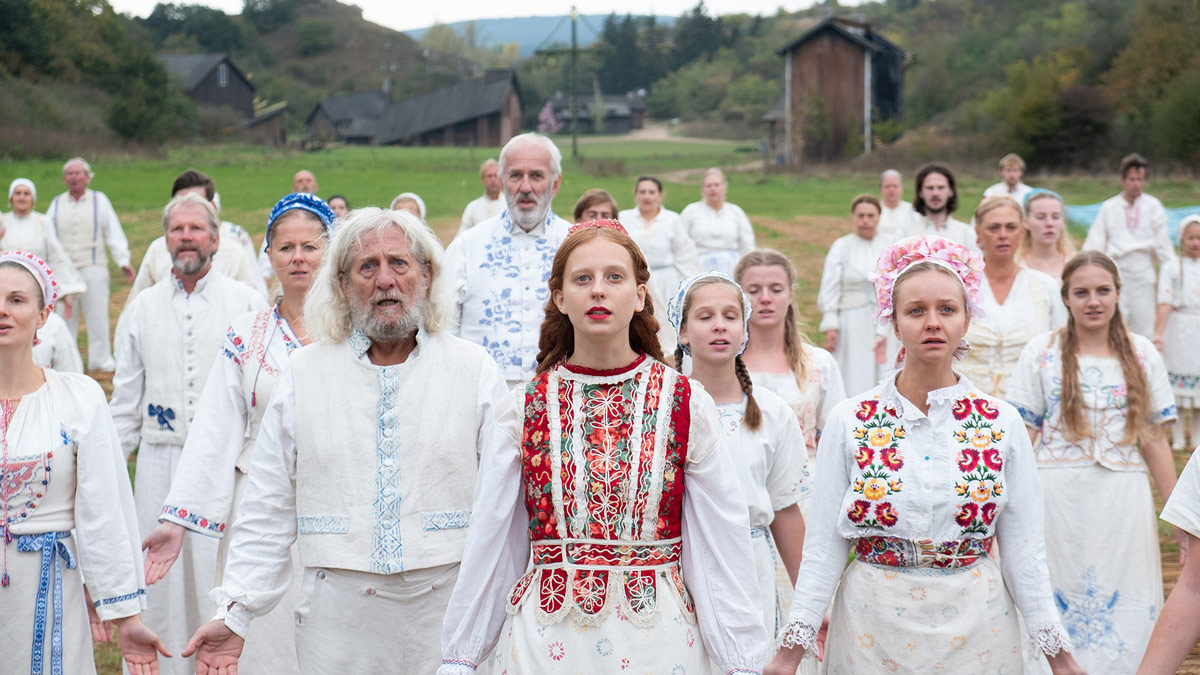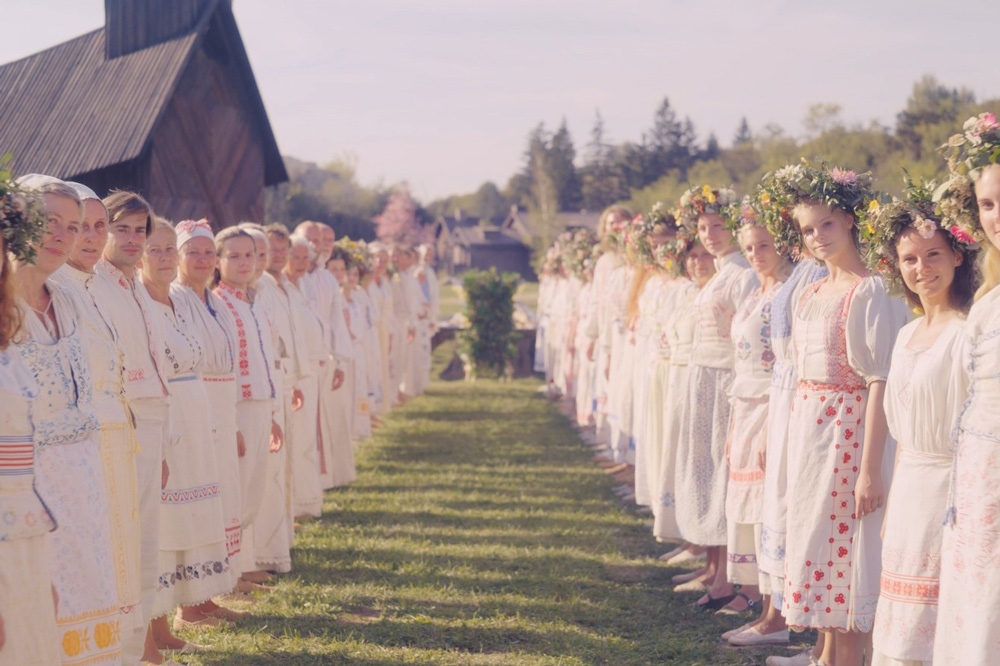
(c)2019 A24 FILMS LLC. All Rights Reserved.
"Midsommar" Demonic induction from fear to "empathy" - A love story that erases the ego
2020.02.22
“Synchrony” evolved from “hereditary/inheritance”
That being said, the "individuality" found in "Hereditary" and "The Strange Thing About the Johnsons" (2011), which Ali made as a student, has of course not disappeared. Rather, what is amazing about "Midsommar" is that by achieving "ease of understanding" and "approachability," Ali's unique artistic talent stands out even more. In a word, it gives the impression of being more "refined."
Dani (Florence Pugh) is a mentally ill college student who relies on anti-anxiety medication. She is plunged into despair when her sister attempts a double suicide with her parents. Meanwhile, her boyfriend Christian (Jack Reynor) feels burdened by her addictive tendencies and has lost the chance to break up with her. Meanwhile, Dani accompanies Christian and his friends on a fieldwork trip and visits a community called Hårga in a remote part of Sweden. The residents of this place limit contact with the outside world and live a self-sufficient life, respecting their own religious beliefs.
The above is a more detailed summary of the opening of "Midsommar." As you can see, the two themes that are characteristic of director Ali, "family" and "faith," are at the core of this film as well. If you look more closely, you will notice echoes of "anxiety," "unhappiness," and "violence" that will not put the audience at ease. The film also delves deeper into the "abnormality of love," which had been hinted at up until now. This change was likely caused by placing lovers at the center, rather than family, as the main focus.
"Midsommar" trailer
And, this is a crucial part, but "Midsommar" depicts "incomprehensible salvation" more strongly than ever before. " Hereditary " evoked fear in the gap between the grandmother who was saved by devil worship and the family that was destroyed. In this film, Dani's life is torn apart by the murder-suicide of her sister, that is, by "family," and her heart is corroded by the "love" of an uncertain lover. By spending time with a community where "everyone in the village is family," Dani feels fear but is also saved at the same time. Although it is set in a horror/thriller-like context, the content is a love story that depicts salvation.
It's not just "horrifying," but also artistic, giving a sense of faith and even divinity. This is one of the reasons why "Hereditary" was brought to the limelight, but the relationship between this work and the audience was somewhat estranged, like the relationship between a painting and its viewers. In other words, the "salvation" in "Hereditary" was always something strange to us, the audience, and this "incomprehensible" discommunication created the horror.

“Midsommar” (c)2019 A24 FILMS LLC. All Rights Reserved.
In contrast, there is certainly an intentional flow of "conformity" in "Midsommar." From the outside, it may seem like an "incomprehensible salvation," but the more you get into it, the more you "adapt" or "conform" to it and feel comfortable. For example, the horror of being able to "understand" the protagonist's progression to evil in " Joker " (2019) or the insane actions in "Parasite" -- the assertion that the imbalance between good and evil is what makes us "human" -- seems to be built into the DNA of "Midsommar."
This is also evident in the way the Holga is portrayed. Rather than simply presenting the community as something "incomprehensible and creepy," the way it is viewed changes depending on whether or not one enters it. From the one-way nature of "Hereditary" to the two-way nature of "Midsommar," this film has deepened into a "dialogue." Director Ali's formidable skills are already reaching maturity.

